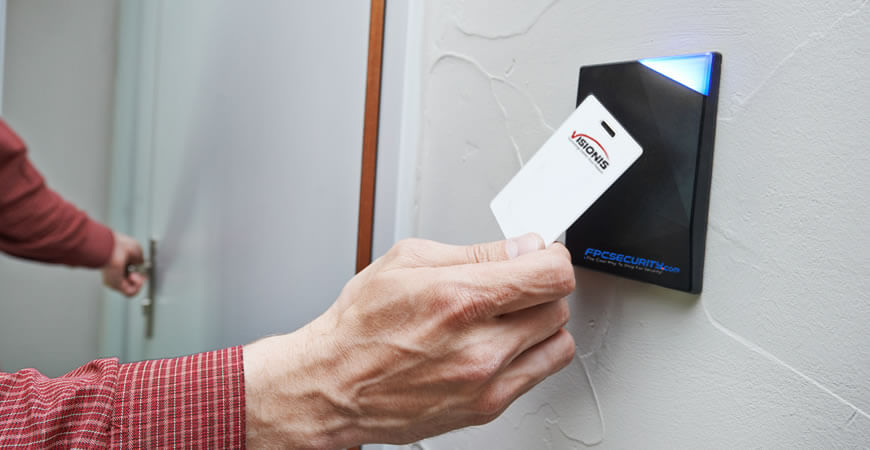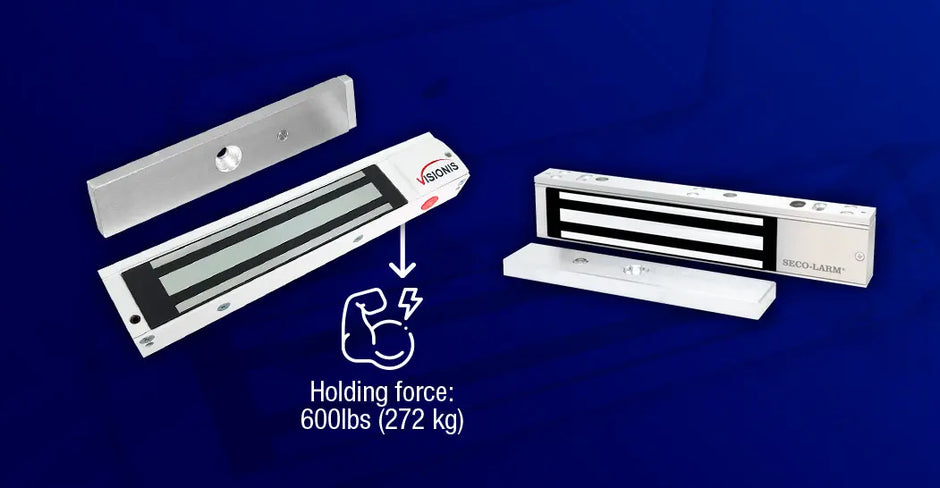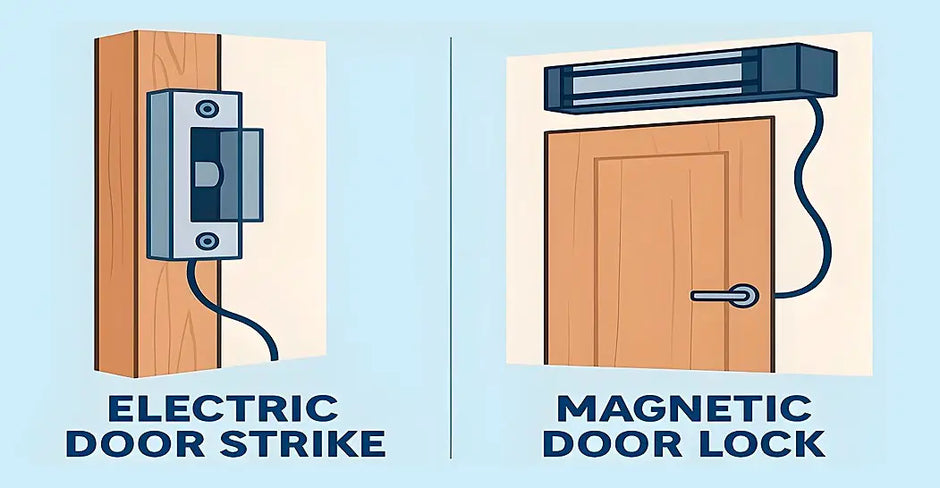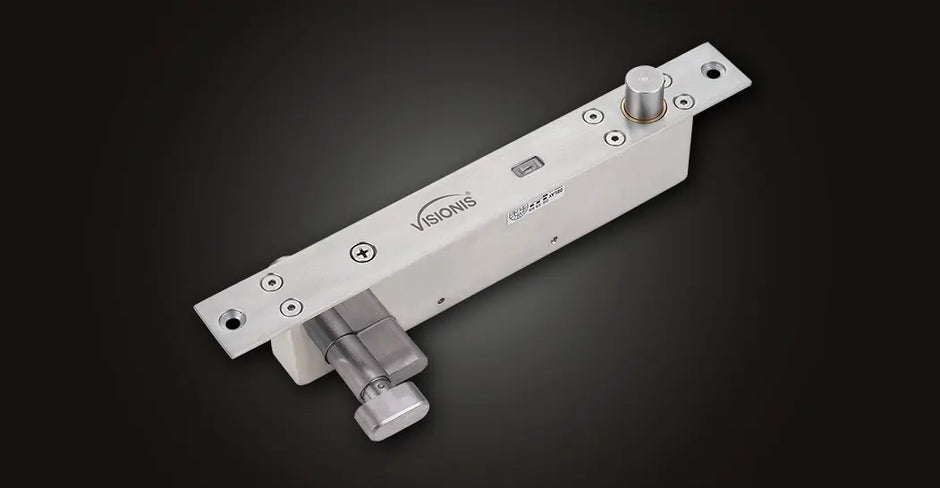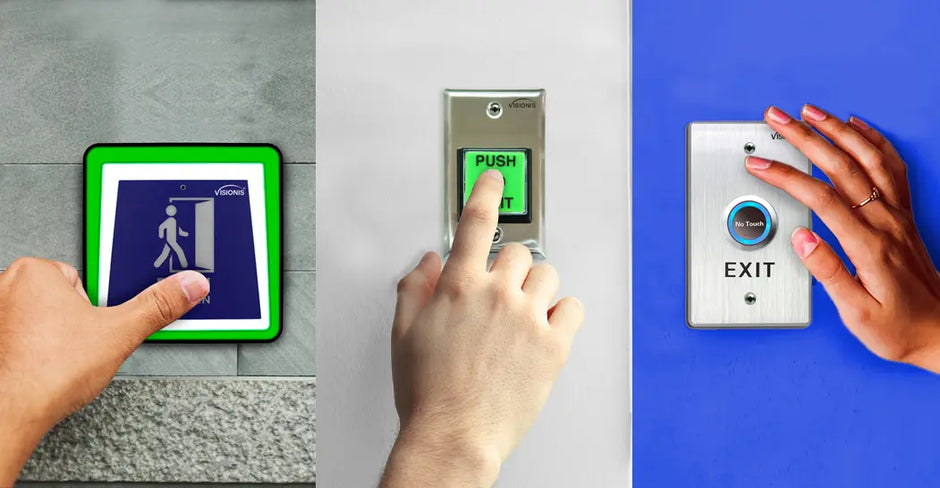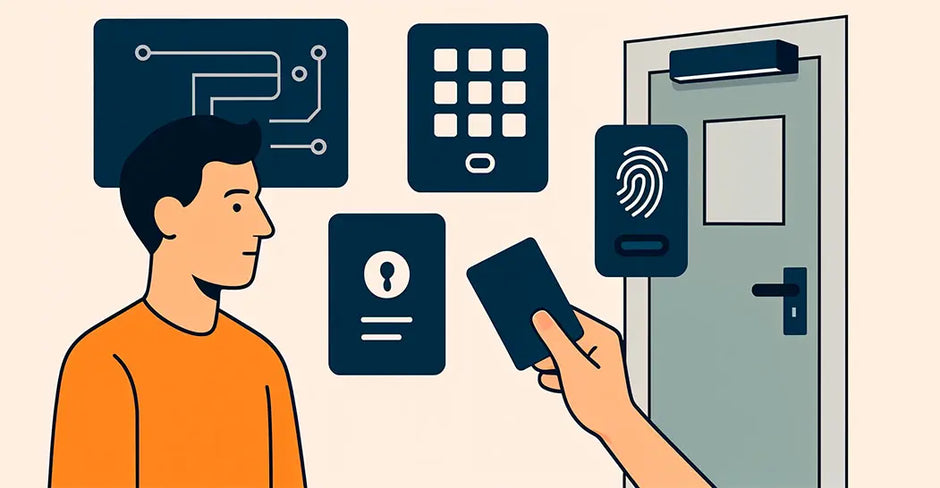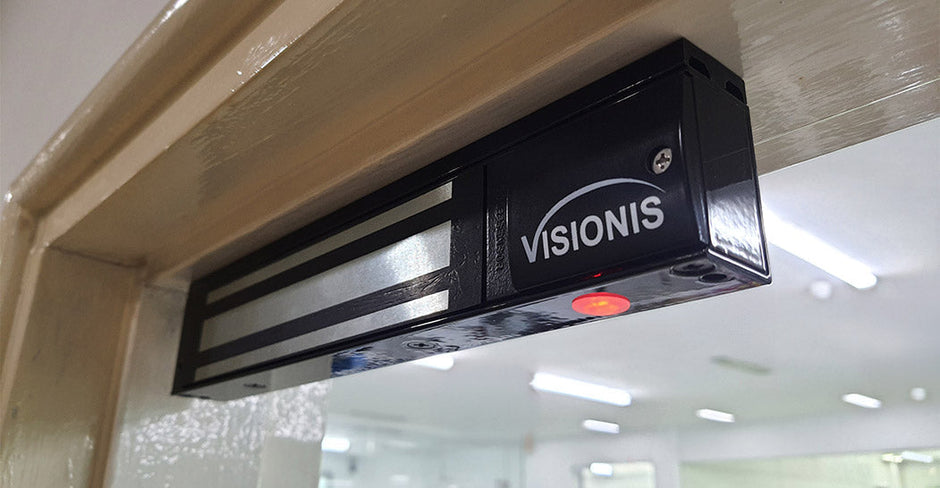Electronic Locks
Electronic locks offer the ability to lock or unlock a door or entryway in ways that are impossible to achieve with traditional metal or brass keys. This ability brings with it many benefits, such as convenience and remote access, but probably the main advantage that these locks bring with them is security.
With the exception of electronic magnetic door locks, the parts that physically secure the door — whether a deadbolt, a spring latch, or other fixture — are essentially the same as with traditional keys. The big difference is that locks that are electronically controlled operate the locking and unlocking mechanism.
It is the ability to do so that sets such locks apart and brings with it numerous advantages over keys. Here are answers to questions you might have on electronic locks:
Do electronic locks make your business more secure?
There can be no doubt that doors or entryways on business premises that are protected electronically are more secure than those that are locked using metal or brass keys.
Here’s a look at reasons that electronic locks for business are more secure than brass or metal keys.
- A major reason is that they are generally operated using a system, such as with a card or keypad, a fob, or even a fingerprint, that can be secured far more effectively than using a traditional key.
Traditional keys, which have been used for centuries, can be stolen, lost or broken. If a key is stolen, a business would have to consider replacing the lock so that entry cannot be made using the stolen key.
Replacing the lock takes time, however, and in the interim the stolen key could be used to gain entry into the building. If a key is lost, it might take time before the loss is realized. Should the key fall into the wrong hands, a thief could pounce at any time, probably in the early hours of the morning, before the lock can be replaced.
- Most traditional locks that use keys can be picked within minutes by someone who understands how the lock works and is adept at picking it. Doing so is almost impossible with modern security features on a lock operated electronically.
- Should the means of access to a building using an electronic lock be compromised, in most cases the electronic means used to do so can be reconfigured. Should a key card, fob or other means of access be lost or stolen the code can immediately be changed to prevent unauthorized access.
- Another advantage of using electronic locks for business means that any form of tampering with the door in order to gain access can be detected immediately. An alarm will be sounded, resulting in security or the police being summoned and unauthorized access prevented.
- Electronic magnetic door locks can add an additional layer of security because they also control the locking mechanism itself.
Why electronic locks are smart locks
The reason electronic locks for business, hotel electronic locks, or residential electronic locks are considered smart is that they can perform a number of secure operations that are not possible using traditional key locks. They also bring additional benefits that are not possible with keys.
- Using radio frequency identification, electronic locks can be operated from a fob or a card that can be carried in a pocket or purse. There is no need, therefore, to fumble for your keys and to determine which one is the right one for the door that you are trying to open.
This ability to open the door without accessing a key is a major benefit at night time, during inclement weather, or when your hands are filled with shopping bags or other items.
- Some locks that are electronically operated also can be opened remotely.
Such a feature means that while you are away and you would like your home to be checked, you can open the door for a neighbor, family member or friend or a housekeeper using Internet access. Such access will operate whether you are relatively close by, if you are thousands of miles away, or even if you are in a foreign country.
The person can, for example, telephone you when they are at your door and you can open it remotely for them.
Such remotely operated locks also can be included in a complete home system, thereby providing additional security.
- Locks with a keypad offer entry to multiple people. A benefit is that some locks can hold hundreds of different codes. This means that there is no need to distribute a universal code, which can be copied or intercepted. Each person can have an individual code that is unique to them.

Burglars and electronic locks
Electronic locks are a strong deterrent to burglars.
- Burglars are less likely to try to break open a doorway that is secured with an electronic lock than one that has a traditional key entry. For many would-be burglars, trying to do so is not worth the effort. Besides the additional effort involved in trying to break electric locks, burglars are aware that electronic locks are monitored and they stand a greater chance of being apprehended while trying to break in. They choose, therefore, to move on to a home or business that has traditional door locks and is easier to break into.
- In guarding against burglary, access through a keypad might be considered — depending on the circumstances — to be more secure than a fob or card that can be lost or stolen. The person gaining access needs to know the code and newer models of electronic locks for business or residences incorporate security features that make it more difficult for burglars to gain access to the code.
- Bio-metric entry, which allows access using a part of the body, such as a fingerprint, is extremely difficult for a burglar to circumvent. Clearly, only those people who have authorized access to the building are the only ones who can gain access.
- Some systems automatically lock a door a certain period of time after it has been closed. This is an excellent safety device to prevent burglary as the chances of leaving the door unlocked and thereby allowing easy access to anyone are cut to zero.
Security tips using electronic locks
In order to ensure that electronic locks for business and for homeowners are as secure as possible, here are a few steps you can follow.
- Take advantage of the additional features that accompany most locks that are electronically operated. Included among these features are those that include built-in alarms that can alert you should someone attempt to break the lock using physical force. Even should a reasonable amount of pressure be applied to the door, such as with a drill or even a tool aimed at breaking the door, the alarm will be triggered?
This enables you to take appropriate action before a break-in can be successful. This feature is particularly useful for door locks for double doors where an unauthorized person trying to gain access might try to break the door a distance from the lock itself.
Another helpful feature is that which sets your door to lock automatically after a set amount of time. Using this feature eliminates the possibility that you might have forgotten to lock the door.
- Ensure you have a back-up should your battery die. First, make sure that your lock’s low-battery warning is turned on. Once it is, take immediate action should it be displayed. In that way, you will not be faced with a situation when you are locked out of your house because the battery has died.
Another way to ensure you are not faced with a dead battery is to replace it at set intervals, such as on your birthday every year.
- For locks that are secured by a pin entered into a pad, be creative in setting a code that cannot easily be guessed. You need to balance the benefits of having a pin you can easily remember the code being obvious to those who want to gain unauthorized access to the building.
In cases where you need to write down codes to remember them, make sure they are not easily accessible. Should you keep a written code in your wallet or purse, a good tip is to write it backward or to disguise it as a telephone number.

Hotels and electronic locks
Most hospitality buildings today have turned to use hotel electronic locks in order to secure their rooms. These hotel electronic locks largely use reader cards that are swiped or inserted into a device on the door of a room.
The hotel electronic door locks are also particularly useful where access is restricted in parts of the building, such as a gym room or a pool, or to restrict entry from outside the building to guests only.
Hotel door locks are generally linked to a central computer system where the codes can be quickly updated for cards issued to new guests or deleted for departing guests.
Use of hotel electronic locks is more secure, more effective and easier to manage than the traditional metal keys that characterized almost all hotel door locks not all that long ago. The expense incurred in installing hotel door locks is well worth the benefits derived from it in terms of safety and theft reduction.

